The views expressed in our content reflect individual perspectives and do not represent the authoritative views of the Baha'i Faith.
On a beautiful summer day a century ago in Teaneck, New Jersey, the Baha’is gathered together in unity with people from every race and class. In the America of that time, no meeting like it had ever happened before.
On June 29, 1912, the Baha’is held that Unity Feast at Abdu’l-Baha’s request:
…it is my wish to give a large feast of unity. A place for it has not yet been found. It must be outdoors under the trees, in some location away from city noise—like a Persian garden. The food will be Persian food. When the place is arranged, all will be informed, and we will have a general meeting in which hearts will be bound together, spirits blended and a new foundation for unity established. All the friends will come. They will be my guests. They will be as the parts and members of one body. The spirit of life manifest in that body will be one spirit. The foundation of that temple of unity will be one foundation. Each will be a stone in that foundation, solid and interdependent. Each will be as a leaf, blossom or fruit upon one tree. For the sake of fellowship and unity I desire this feast and spiritual gathering. – Abdu’l-Baha, The Promulgation of Universal Peace, p. 206.
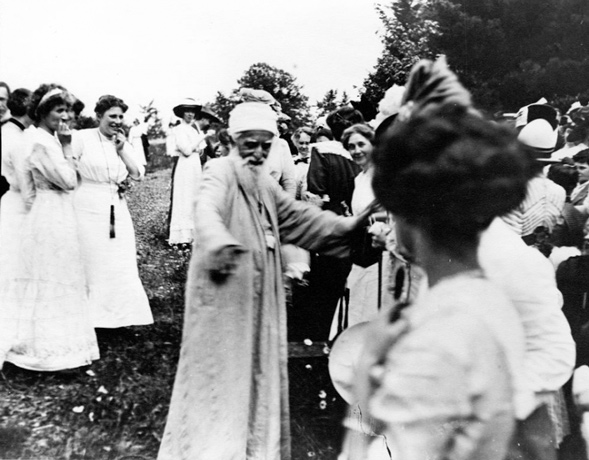
Abdu’l-Baha at the Unity Feast in Teaneck, NJ in 1912
It was a multi-cultural, multi-racial gathering of approximately 250 Baha’is and their friends. Since that time, thousands of such events have taken place in the world, just as Abdu’l-Baha envisioned. In fact, the Unity Feast as a souvenir of Abdu’l-Baha’s visit has been an annual event in Teaneck for many years.
At the latest Unity Feast in Teaneck this past June, among the good cheer of the participants, I found myself pondering an elusive question: What did Abdu’l-Baha have in mind as the underlying purpose and nature of the Unity Feast?
Speaking at the 1912 Unity Feast, Abdu’l-Baha described that the gathering as “a prototype of that inner and complete spiritual association in the eternal world of being.” He contrasted it with “the world of mankind, where people are drawn together by physical motives or in furtherance of material interests.”
The past year has seen many multi-racial, multi-cultural gatherings for worthy purposes, among them the Earth Day march in New York for the future generations of human race to have a sustainable environment; and the Ravenel Bridge march in Charleston, in remembrance of the nine murdered African-American church-goers. These gatherings addressed critical issues of ethics, morality, and justice; with the ultimate call to action a social, cultural and political plea for society to grapple with a pressing problem.
In contrast, Abdu’l-Baha’s words describe the Unity Feast as a “prototype” of a collective state of being beyond the material world. As I look around in Baha’i gatherings, I see many races, cultures, ages, income levels, degrees of education, etc. We interact in the course of our everyday lives, trusting, respecting, and loving each other. But these still seem observable characteristics and behaviors. An “inner and complete spiritual association in the eternal world of being” sounds like a totally different level of existence to me.
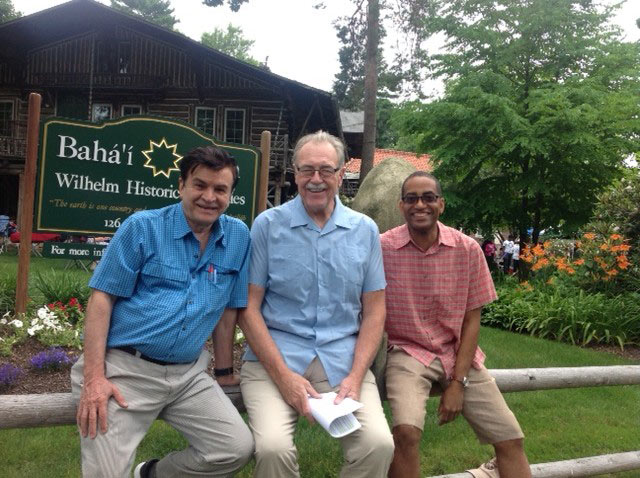
103rd Commemoration of the Unity Feast in Teeneck, NJ
What does the word “prototype” mean in the context of the eternal world? A prototype is a preliminary model, a draft, a beta version, something that requires the attainment of perfection through trial and error. It implies an achievable goal. So maybe Abdu’l-Baha intended the Unity Feast as the world’s first true attempt at achieving a harmony of spirits, however elusive we may find that laudable goal.
The people who attended the first Unity Feast in 1912 (like people today) brought a variety of impediments to unity–particularly the unity of souls. They had their petty concerns, major life issues, prejudices, rivalries and so forth. But they also brought the potential for something rare in human experience–something we can aspire to—a unity of spirit. I can only imagine that the presence of Abdu’l-Baha transported those lucky enough to have been at Teaneck that day to a state of being, even momentarily, beyond any experience they had ever known before or might ever know again.


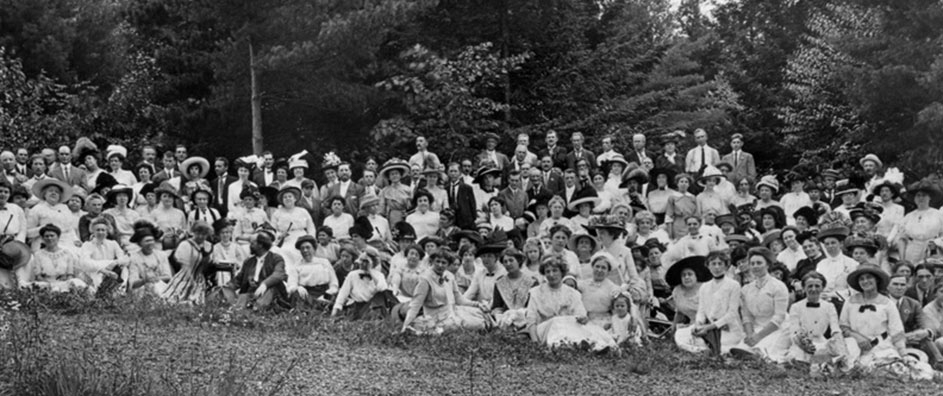

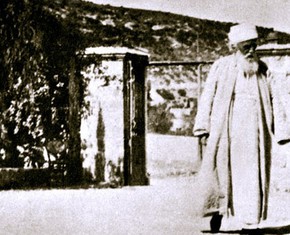
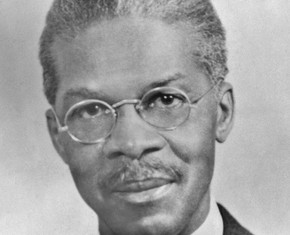
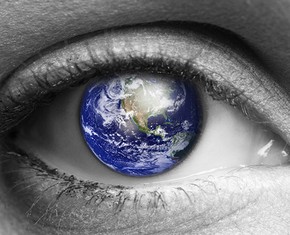









Comments
Sign in or create an account
Continue with Googleor